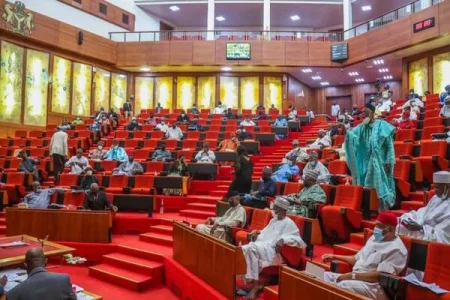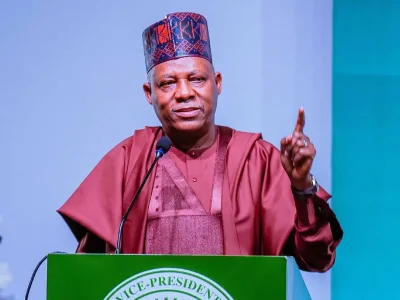
Revelations show Nigerian senators earn over N2 billion monthly, sparking outrage amid economic struggles. Senator Kawu Sumaila confirmed a N21 million monthly pay, highlighting the vast disparity between lawmakers' earnings and average Nigerians' income. Civil society groups call for transparency and reduced governance costs in response to these revelations.
Recent revelations have shed light on the substantial earnings of Nigerian senators, with the total monthly pay for 99 non-principal officers surpassing N2 billion. Senator Abdulrahman Kawu Sumaila of Kano South confirmed that he receives approximately N21 million each month, which includes allowances for office management, domestic trips, and daily expenses. This staggering figure has ignited widespread debate, particularly in the context of Nigeria’s struggling economy.
While the specific earnings of the Senate's top leadership remain undisclosed, the revelation of such high salaries for rank-and-file senators has raised concerns among civil society organizations (CSOs) and the general public. The Socio-Economic Rights and Accountability Project (SERAP) criticized the exorbitant pay, highlighting the stark contrast between the N21 million monthly allowance for senators and the N70,000 minimum wage for the average Nigerian worker. They argue that Nigeria's democracy is among the world's most expensive, yet it delivers limited benefits to its citizens.
Former President Olusegun Obasanjo has also voiced strong opposition, condemning the practice of lawmakers setting their salaries and allowances as "immoral." His criticism underscores the growing dissatisfaction with the financial practices of the National Assembly, particularly in light of the economic hardships faced by the majority of Nigerians.
Transparency advocates, including Yiaga Africa and the Resource Centre for Human Rights and Civic Education (CHRICED), have called for greater accountability in the legislative process. They argue that the secrecy surrounding lawmakers' earnings only fuels public distrust and hinders the nation's progress.
As Nigeria continues to grapple with economic challenges, the debate over lawmakers' pay is likely to intensify. Many are questioning whether such high compensation for a select few is justifiable in a country where millions of citizens lack access to necessities like healthcare, education, and infrastructure. The calls for reform are growing louder, with demands for a more equitable distribution of the nation's resources and a reduction in the cost of governance.




